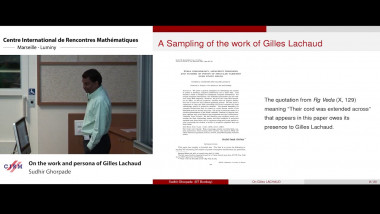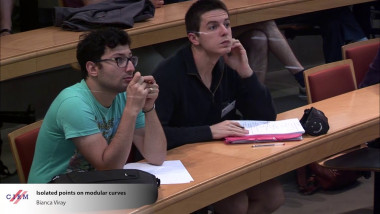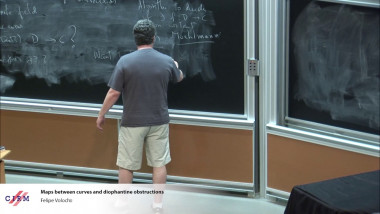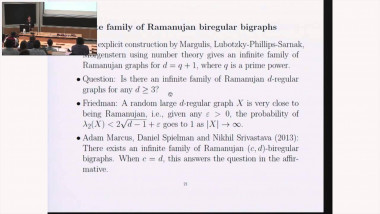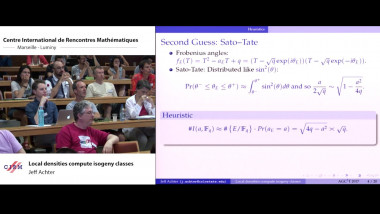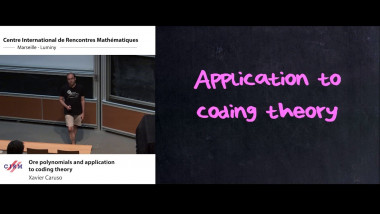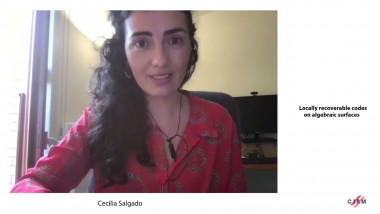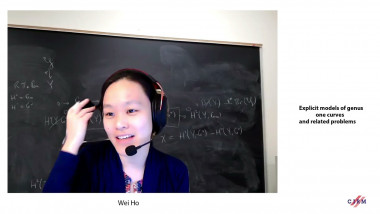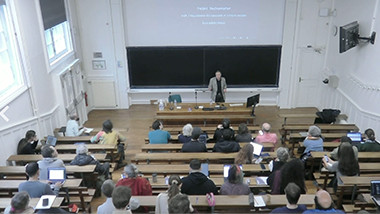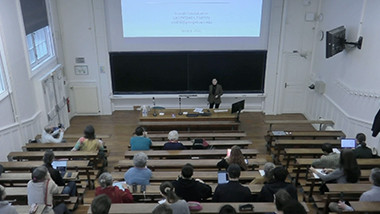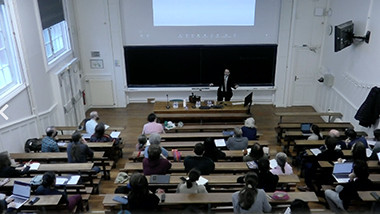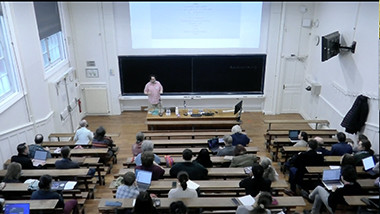Brauer-Siegel theorem and analogues for varieties over global fields
De Marc Hindry
The classical Brauer-Siegel theorem can be seen as one of the first instances of description of asymptotical arithmetic: it states that, for a family of number fields $K_i$, under mild conditions (e.g. bounded degree), the product of the regulator by the class number behaves asymptotically like the square root of the discriminant. This can be reformulated as saying that the Brauer-Siegel ratio log($hR$)/ log$\sqrt{D}$ has limit 1. Even if some of the fundamental problems like the existence or non-existence of Siegel zeroes remains unsolved, several generalisations and analog have been developed: Tsfasman-Vladuts, Kunyavskii-Tsfasman, Lebacque-Zykin, Hindry-Pacheco and lately Griffon. These analogues deal with number fields for which the limit is different from 1 or with elliptic curves and abelian varieties either for a fixed variety and varying field or over a fixed field with a family of varieties.













